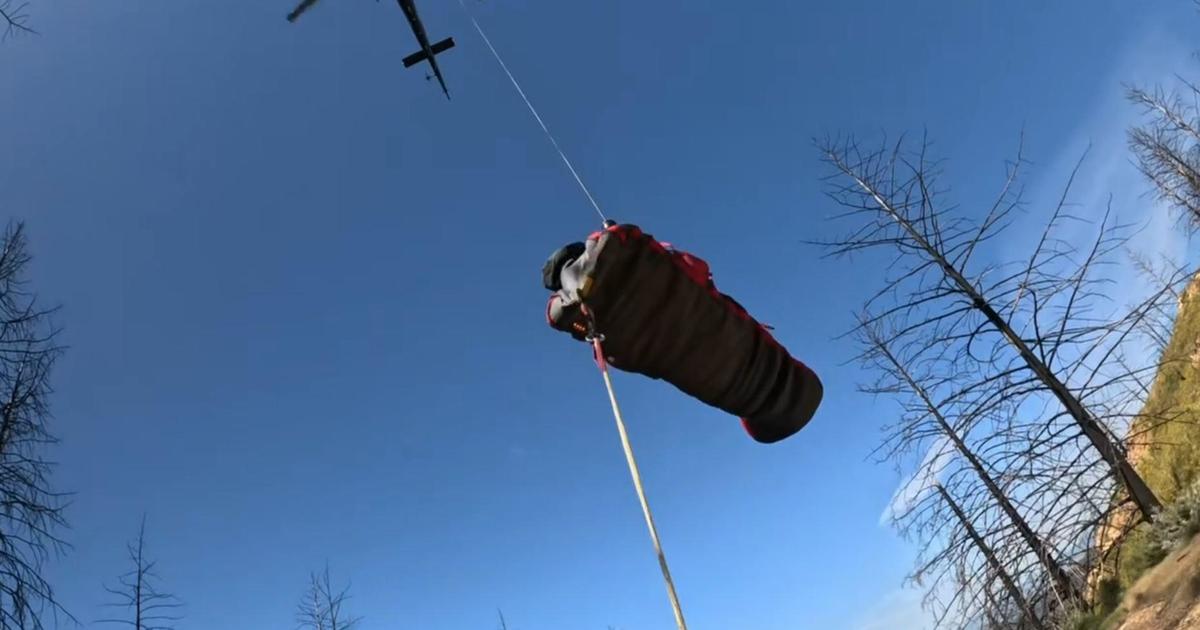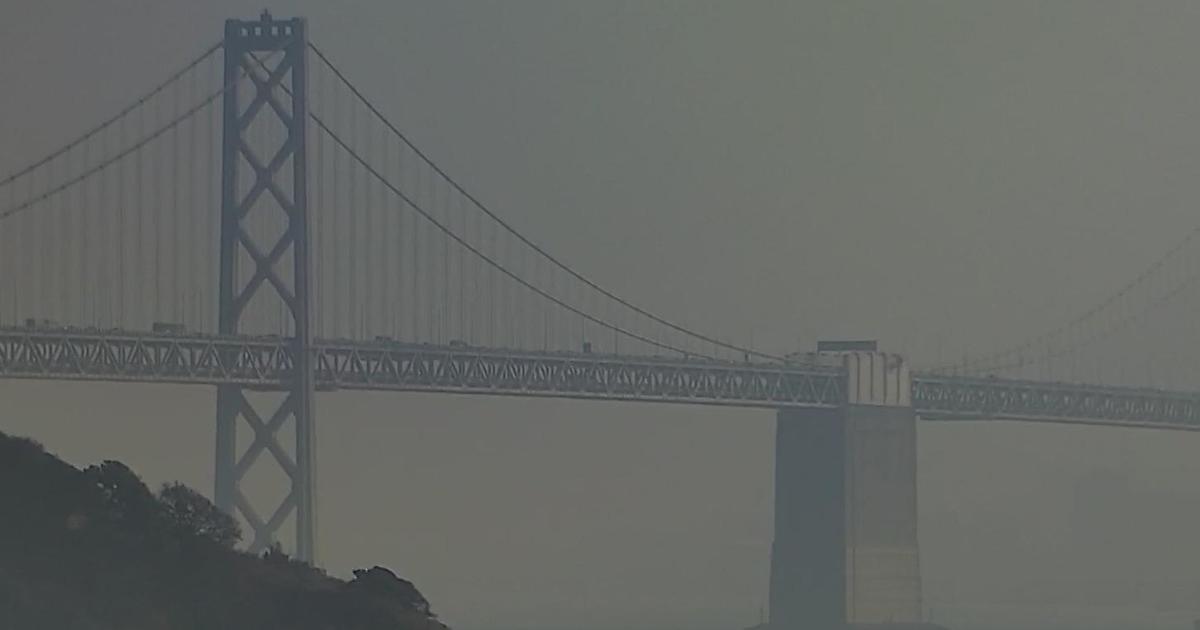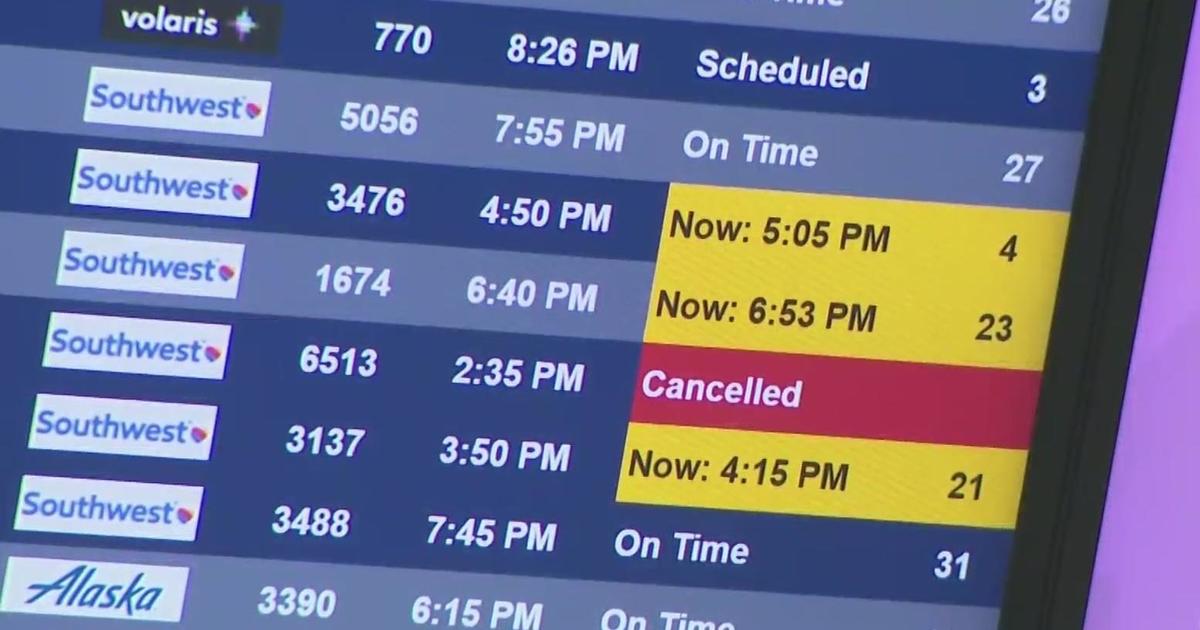Pilot Of Drone That Nearly Hit CHP Helicopter Says It Was On Autopilot
MARTINEZ (CBS SF) – The operator of a drone that nearly collided with a California Highway Patrol helicopter in the skies over Martinez earlier this month said Wednesday the drone was on autopilot at the time because a safety feature had kicked in when he lost its signal.
Aviation student Owen Ouyang said in an interview that he wants to publicly apologize to the CHP pilot for the incident.
"Even though it was not in my control, I am the owner of the drone, I would like to ask for forgiveness from the CHP pilot," Ouyang said. "I'm a student pilot myself so I would like to say sorry to him."
The CHP has said the operator could be facing criminal charges. The helicopter flight crew, who was tracking a stolen car on state Highway 4 at about 9 p.m. on Dec. 5, had to take evasive action when the drone passed at close range.
The drone was tracked to Roux Court, where Martinez police contacted Ouyang, he said.
The Federal Aviation Administration recommends that drone hobbyists fly at altitudes lower than 400 feet, but when it passed the CHP helicopter, Ouyang's drone was flying at between 700 and 800 feet.
Ouyang said he was careful to fly his drone at the recommended altitude. However, when he lost the drone's signal, the autopilot kicked in, sending it to an altitude of 700 feet and directing it back to its point of origin.
The drones typically are set not to fly above 400 feet, but Ouyang had changed the setting to allow it to fly higher to avoid crashing into any buildings or power lines while returning, his attorney Joseph Tully said.
Tully said Ouyang has been cooperating with the investigations by police, the FAA and Caltrans. Since Ouyang had no criminal intent in flying the drone at that height, Tully expects no criminal charges to come of the incident.
Criminal charges would not be unprecedented. Law enforcement agencies and airports are working to find ways to prevent hobby drones from interfering with their operations.
In September, a man was charged in Los Angeles for allegedly flying a drone too close to a Los Angeles police helicopter, forcing the crew to take evasive action, according to the Los Angeles City Attorney's Office. If convicted, he could face up to a year in jail and $1,000 in fines.
Earlier this month, San Francisco International Airport officials warned drone hobbyists that flying them within 5 miles of an airport could carry civil penalties.
But as regulations of emerging drone technology remain patchy, even drone owners trying to be responsible like Ouyang can run afoul of regulations despite their best efforts.
Ouyang, 23, has been playing with toy helicopters since he was a 7- or 8-year-old boy growing up in China. He came to the U.S. in the summer of 2012 to attend Diablo Valley College in Pleasant Hill, eventually enrolling in aviation school where he has learned how to repair helicopters and fly six or seven different types of aircraft.
When he bought his DJI Phantom 3 Advanced drone two or three months ago, he extensively researched drone regulations to make sure he would follow them.
So when he was flying the drone, Ouyang said he kept it under 400 feet as the FAA recommends to avoid near-collisions with aircraft.
But he wasn't expecting to lose the drone's signal and just in case he did, he changed the maximum altitude setting out of fear that the drone could collide with any buildings or power lines built on hills.
DJI, the maker of the drone, was not immediately available to comment on the autopilot feature.
Tully said there could potentially be a technological solution to the problem. Drones could use mapping technology to keep track of the heights of buildings nearby and avoid them. New vehicle-to-vehicle communications systems could be used to alert drones when they're approaching another aircraft.
Ouyang said he thinks regulators and manufacturers need to work out the details of how to avoid these kinds of situations.
Regulations for drones are already becoming stricter. As of this month, the FAA will require owners of drones weighing more than about half a pound to register them. Failure to register them could lead to civil or even criminal penalties.
Ouyang said he agrees with that step since it will make investigating incidents with drones easier.
© Copyright 2015 by CBS San Francisco and Bay City News Service. All rights reserved. This material may not be published, broadcast, rewritten or redistributed.



